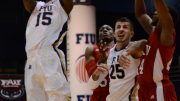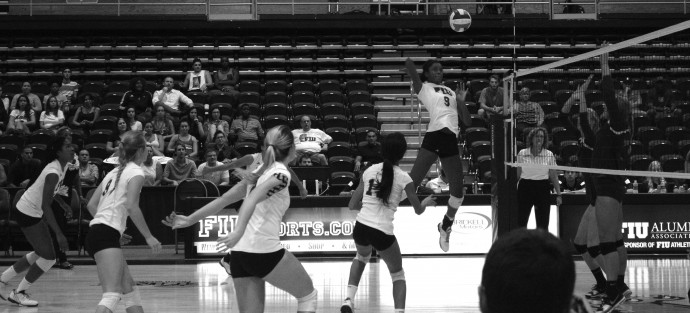Dalton Tevlin/Sports Director
The life of student-athletes is heading in the right direction.
On Tuesday, Oct. 29, the National College Athletics Association passed a bill that will allow college athletes to be compensated for their likenesses.
This bill, which passed unanimously, is leaps and bounds away from the NCAA original stance on student-athletes getting paid. The NCAA’s past stance was that athletes wouldn’t be compensated in order to ensure a level of amateurism that exist in college sports.
This decision comes after California became the first state to allow college athletes to make money off endorsements and hire agents.
The bill is expected to be fully implemented by 2021, making it the first time in history that college athletes will be allowed to make money.
So what does this mean for college sports? Does it mean all this is wrong with college athletics is fixed with one unanimous vote? To put it simply, no.
This bill is great if you are considered one of the top recruits in the nation. Players like Alabama quarterback Tua Tagovailoa, Clemson quarterback Trevor Lawerence, and former Duke basketball player Zion Williamson all benefit from this bill much more than others.
This bill ensures student-athletes are still treated equally to other students. The NCAA doesn’t want college athletics to be looked at as a job so they allow players to make money from outside sources of revenue.
This is great, but the average student-athlete doesn’t come anywhere near an advertiser’s radar, especially here at FIU.
Athletics programs such as FIU’s don’t have the notoriety as other big-time sports schools do. Alabama football is a hotbed for Nike sponsorships, FIU football, unfortunately, is not.
This bill is at the very least a step away from the NCAA’s craving for amateurism but there is still a long way to go. More and more we see highschool athletes decide to go play in foreign leagues for a year before turning pro, simply because they get paid.
Players like Lamelo Ball are circumventing the NCAA and gaining their draft eligibility overseas playing against professionals and making money at the same time. The NCAA will need to do much more to convince these players that coming to the NCAA makes sense professionally and financially.
This bill also creates a dynamic where select members on a team will be raking in the sponsorship dollars will the seventh man off the bench gets his swipes at 8th Street Cafe.
This bill was created for the superstar recruits. The players who have a 62.5 million dollar shoe deal from Nike once they leave college like Zion, not Maha Gouda, FIU’s Olympic-level diver from Egypt.
While this is a step in the right direction, the NCAA has much more to do if they hope to secure the future of college athletics. We will see how this bill unfolds in the coming months, check back with PantherNOW for more updates.





Be the first to comment on "What The NCAA Ruling Means For FIU Sports"